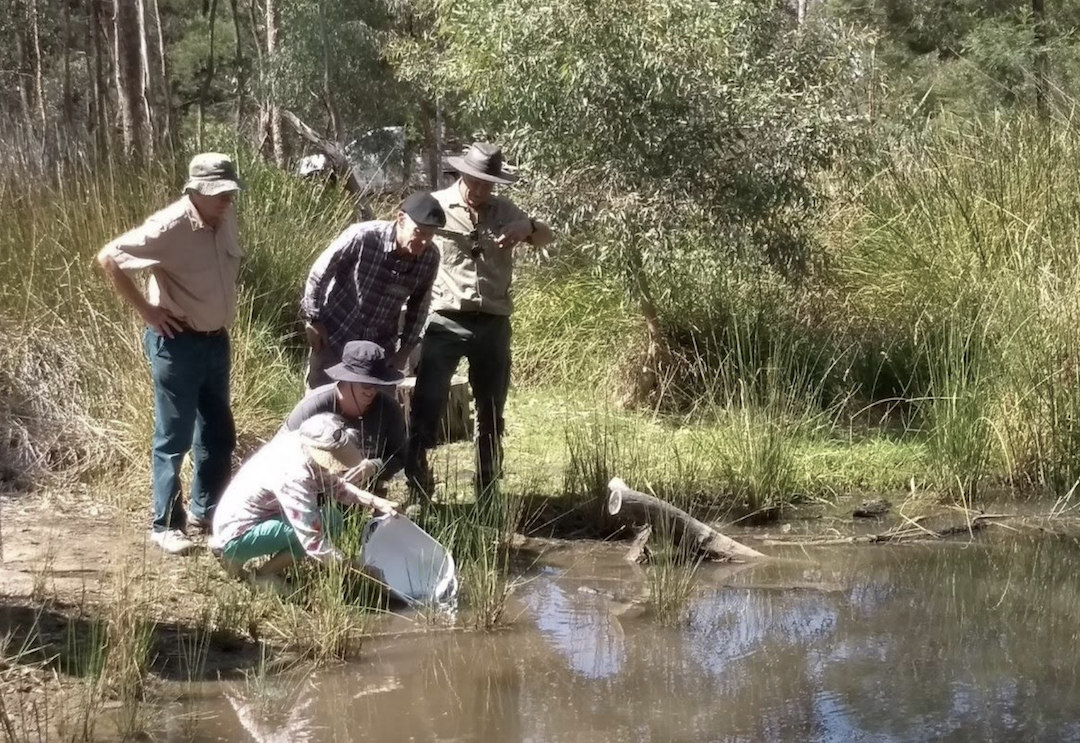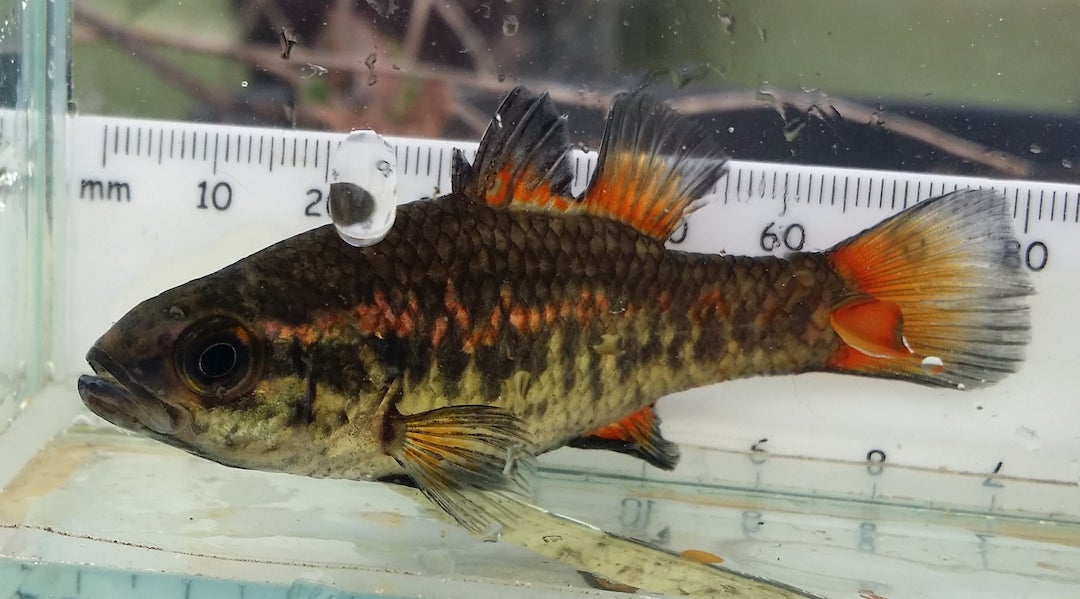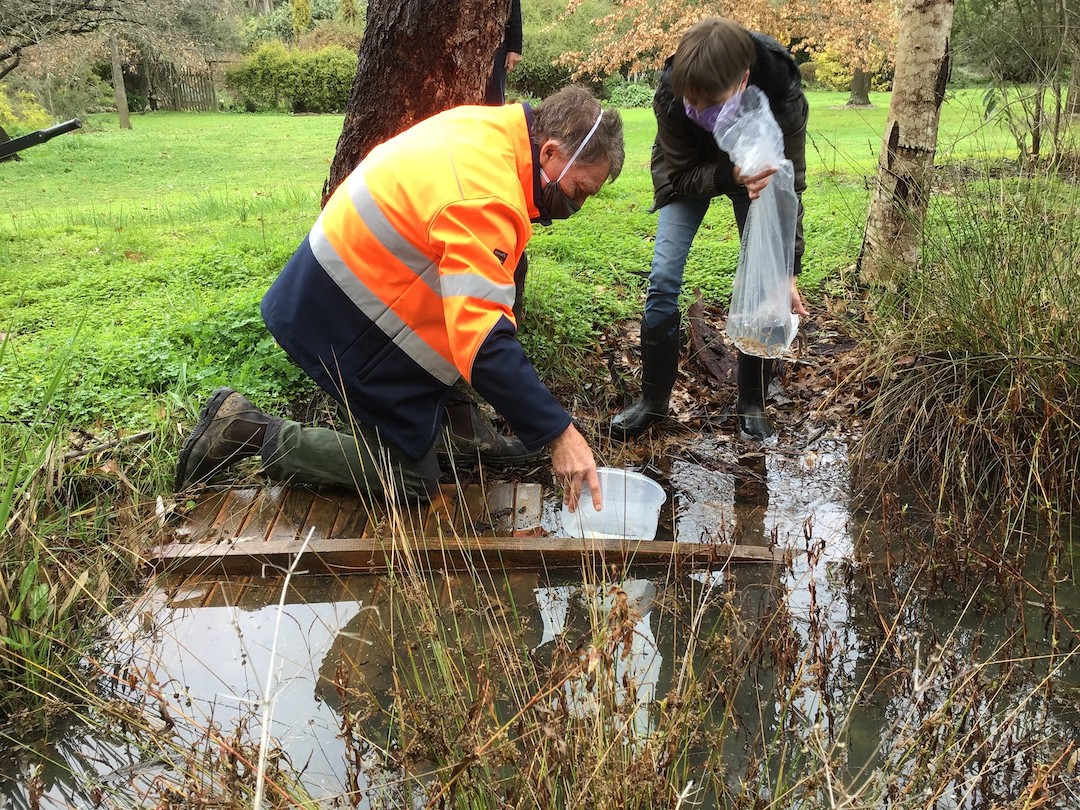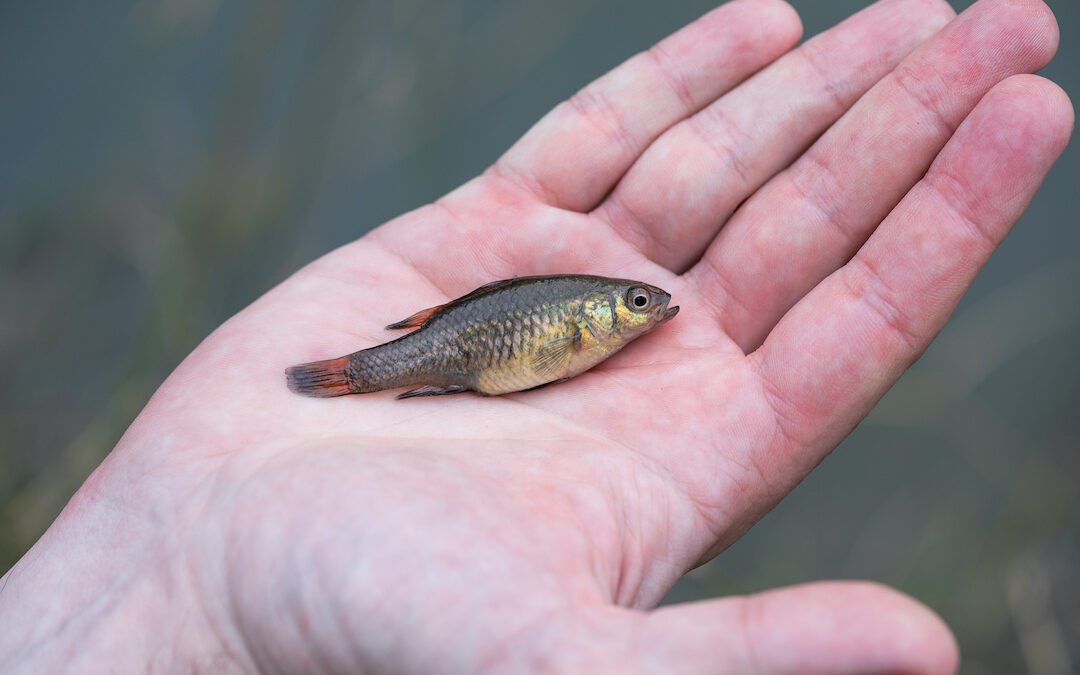Restoration efforts have brought an endangered fish species back from the edge.
Flinders University has collaborated with local community groups to return the southern pygmy perch to Bendigo, Victoria.
The plan to bring this endangered species back began five years ago, and is now coming to fruition.
Flinders Molecular Ecology Lab PHD and co-author of a recent research article, Sean Buckley, says that recovery is very much underway.
“Recently we heard our established population at the Cadella Way wetland has just been used to reintroduce southern pygmy perch to nearby areas where the species has been locally extinct for more than 20 years,” he says.

Team reintroducing southern pygmy perch to the Bendigo region © City of Greater Bendigo community team.
Precious pygmy
The southern pygmy perch is a species of small freshwater fish that used to flourish in the Murray-Darling Basin. However, they have since disappeared from many regions, including Bendigo, due to invasive species such as carp, habitat fragmentation, droughts and bushfires.
These fish are most often found in small covered habitats such as streams, billabongs and lakes, preferring still water to the movement of the open ocean. Growing between 65 and 85 mm, they feed on small crustaceans and insects.
Sadly, this is not the first time that southern pygmy perch have been endangered. According to a report from the Government of South Australia, urgent action was required between 2007 and 2008 to ensure the survival of this species. Loss of wetlands and prolonged drought caused a rapid population decline, resulting in emergency watering and the rescue of wild fish to be placed in a specialised breeding program.

A southern pygmy perch © Middle Creek Farm
A vital collaboration
In order to re-establish southern pygmy perch into the Murray-Darling Basin, a community driven project involving local government, landcare managers, fish hobbyists, an aquaculture business and Flinders University researchers was founded.
Volunteers collected fish from nearby rivers and deposited them in an aquaculture facility in order to breed and grow numbers. Then, 600 fish were released across three wetlands.
Genetic research from the Molecular Ecology Lab at Flinders University (MELFU) drew on ten years of data to identify the best process for reintroduction while maintaining genetic diversity and preventing inbreeding.
“Something we knew about pygmy perch is that they have very low genetic diversity, so this was something we particularly wanted to keep an eye on,” says Dr Buckley.
“Making sure that the population wouldn’t lose any diversity from the captive-breeding and release was essential to give them the best chance of thriving in their new home.”

Restoration efforts underway © City of Greater Bendigo community team
Empowered by this knowledge, the project was able to maintain genetic diversity, with follow up monitoring revealing that population numbers continue to increase.
The success of the project has encouraged further reintroduction of southern pygmy perch and other threatened species throughout the region.
According to the report, ‘A community-driven captive-breeding and reintroduction program maintains genetic diversity in a threatened freshwater fish’, community collaboration was vital to the success of the project. By involving local non-expert groups, scientists fostered relationships, drew on local knowledge and encouraged the use of scientific information in decision-making frameworks.
“Collaborative approaches to conservation management are critical to respond to the ongoing biodiversity crisis,” says the report.
Co-author of the article and MELFU lead Professor, Luciano Beheregaray, adds “we hope that our study showcases how collaborative community efforts that include genomics might have great outcomes for conservation.
“We’re looking forward to expanding these collaborations in the future.”
To learn more about the need to protect Australia’s marine species, check out this article on sea cucumbers.

